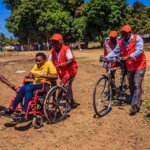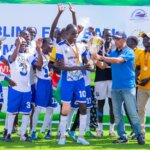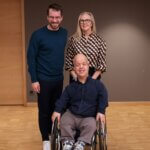- General
When disasters strike, people with disabilities are up to four times more likely to die. A new innovation, co-created and tested by people with disabilities, helps ensure they are included — not ignored — in emergency response and planning.
People with disabilities are more at risk in humanitarian emergencies than most data suggests, the first fully inclusive data collection tool for emergencies has revealed.
In many emergencies, identifying or understanding the specific needs of people with disabilities and older people is not a priority, risking cutting them out of relief efforts.
A new tool aims to change that. The Survey for Inclusive Rapid Assessment (SIRA) is an open-source, screen-reader accessible tool that lets aid workers rapidly gather the right data so emergency responses can reach people who would otherwise be missed.
Jacqueline Bungart, Senior Expert, Humanitarian Action, Light for the World, says: “At Light for the World, we are seeing an increase in humanitarian crises in the countries where we work.
“About one in six people globally has a disability. In humanitarian contexts, the number of people with disabilities is often much higher. For example, in Cabo Delgado, Mozambique, in 2024, people with disabilities made up over 30% of people affected when also considering psychosocial conditions.
“Comprehensive data on the actual prevalence of people with disabilities in emergencies is rare. Yet from our work we know they are among the most marginalised people during humanitarian crises.”
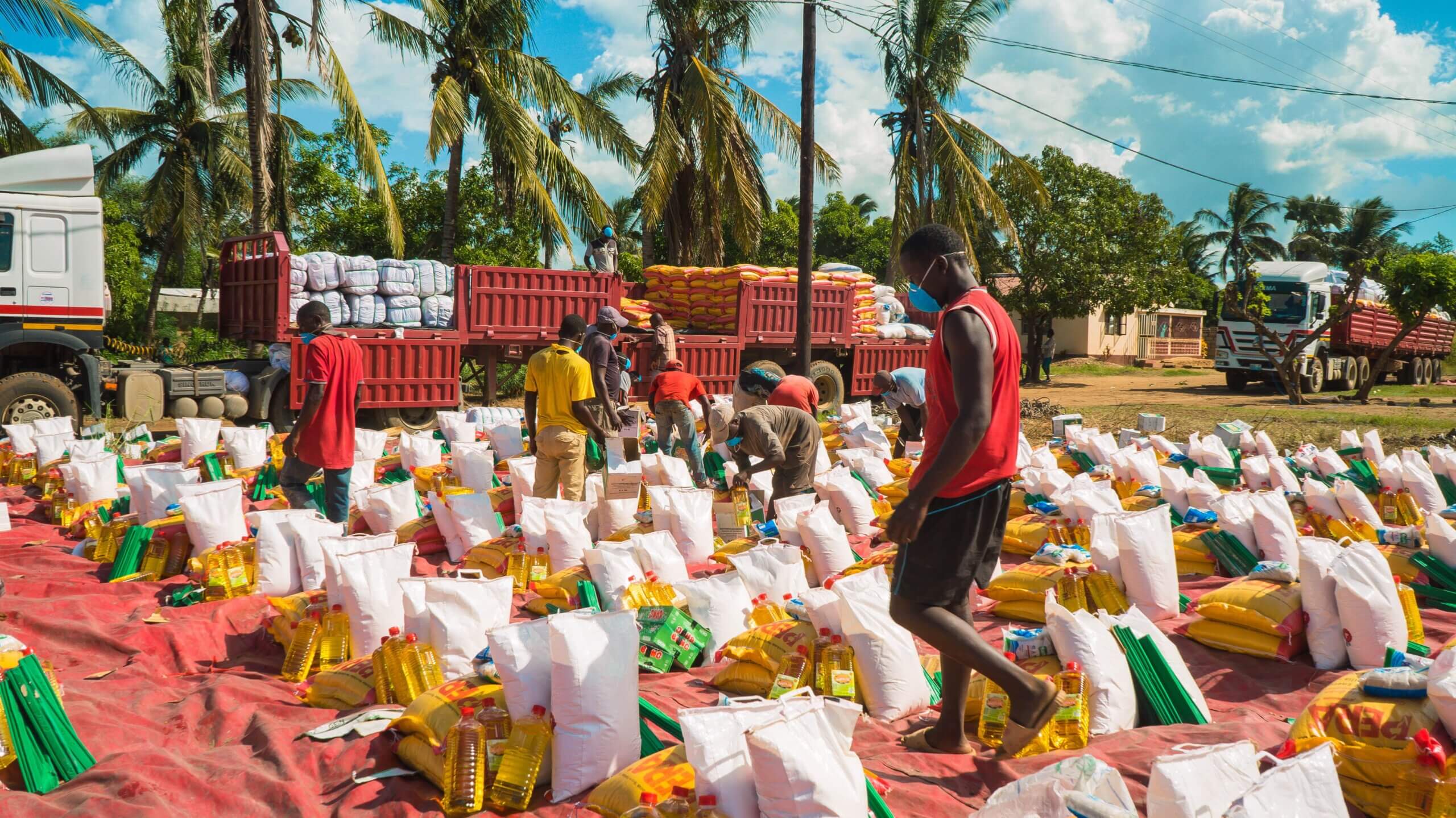
Data that includes everyone
The SIRA tool was developed by Light for the World in partnership with FAMOD (Forum das Associações Moçambicanas de Pessoas com Deficiência), Mozambique’s national Organisation of Persons with Disabilities (OPD). The co-creation process was facilitated by Design Innovation Group, a Netherlands-based organisation specialised in human-centred design facilitation.
People with disabilities were at the centre of the process. From participating in the creation of the tool and using it to collect data from more than 2,400 people, to using the data to advocate for better disability and older age inclusion in Mozambique.
FAMOD is using the results of the data collection to lobby for better understanding of, and increased support for, people with disabilities in humanitarian situations. As a result of this, humanitarian and governmental organisations are also contacting FAMOD for their expertise in inclusive data.
SIRA and a practical how-to guide for building inclusive data ecosystem were produced under the Data That Matters project, with funding by Elrha and UK Aid.
In 2024 SIRA was field-tested in more than 1,500 households in both the state capital and camps for Internally Displaced People (IDPs) in Cabo Delgado, Mozambique. There are more than 425,000 IDPs in the region, where an armed insurgency and climate disasters have forced people from their homes.
One in six (16%) people globally has a disability, and research suggests the prevalence of people with disabilities affected in emergencies is even higher.
The broader approach of the SIRA tool — which includes assessing psychosocial conditions — indicates conventional estimates may undercount the number of people with disabilities in crises. SIRA found the number of IDPs with disabilities surveyed in Cabo Delgado could be as high as 30%, when also considering psychosocial disabilities. This included a 10% prevalence in children, and up to 70% of individuals aged 50 or above.
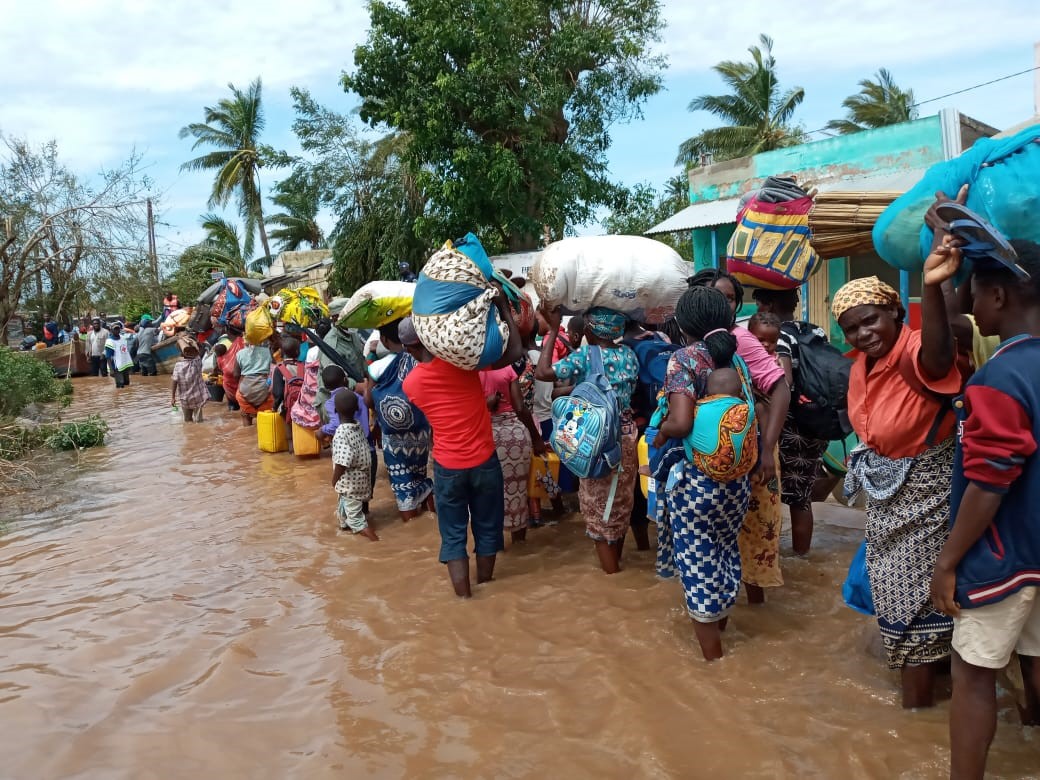
Closing the disability data gap
People with disabilities and older people often remain invisible in humanitarian emergencies because the information collected is incomplete, inaccessible or collected without meaningful involvement of OPDs or Older Persons Associations (OPAs).
Too often, data is patchy, lacking depth and inaccessible for both respondents and data collectors.
Co-created with OPDs, NGOs, UN agencies and government partners, SIRA, is a screen-reader accessible digital data collection tool built for rapid inclusive assessments in emergencies.
SIRA combines the standard disability screening Washington Group questions with open-ended interviews to capture quantitative and qualitative data. People who may be vulnerable are quickly identified, with a rapid assessment of the risks they face and the obstacles to emergency support.
An embedded referral mechanism connects participants to available services where possible, while aggregated findings inform future programming and give communities evidence to push for change.
Importantly, people with disabilities are able to conduct the survey. Teams from FAMOD and Disability Inclusion Facilitators led field testing of SIRA — strengthening local leadership and ensuring the tool worked in practice.
“People with disabilities and Organisations of Persons with Disabilities must lead the way in creating inclusive data ecosystems,” says Clodoaldo Castiano, Director of FAMOD.
“Only through our direct involvement and lived experiences can we build a humanitarian system that leaves no one behind.”
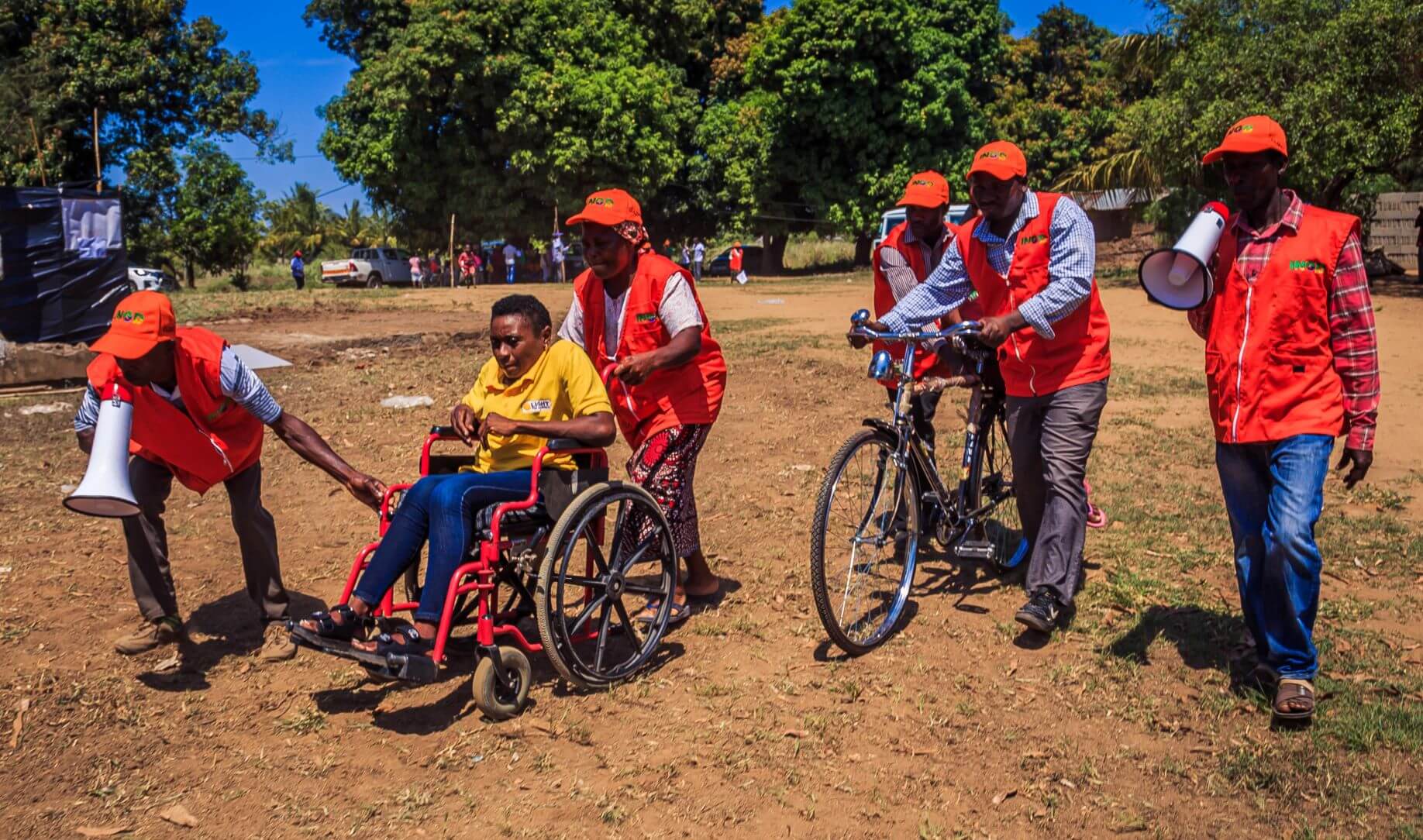
From data to action
SIRA arrives as humanitarian actors grapple with how to make responses genuinely inclusive, amid evidence showing exclusion costs lives.
As well as making people with disabilities visible in emergencies, SIRA aims to strengthen the voice of people with disabilities in crisis response and future disaster planning.
Data collected with SIRA in Cabo Delgado has already been used to inform the Mozambican humanitarian response plan for 2025.
“SIRA gives every humanitarian actor a practical way to commit to inclusion during crises,” says Nadir Abu-Samra-Spencer, Expert, Data and Research at Light for World.
“SIRA shows that inclusive innovation is about power, participation and partnership — not just tools and technology. When OPDs and OPAs lead, action is more equitable, data more meaningful and responses more effective.”
SIRA is open-source and available for NGOs, UN agencies and governments to pilot. Organisations interested in testing SIRA or adapting it for their context can access the tool (here) and the how-to guide (here – available in English, Portuguese or French).
For enquiries related to SIRA, please contact:
- Nadir Abu-Samra-Spencer, Expert, Data and Research, Light for World: n.abu-samra-spencer@light-for-the-world.org
- Clodoaldo Castiano, Director of FAMOD (especially related to Mozambique): clodoaldo.castiano@famod.org
For enquiries related to disability-inclusive humanitarian action, please contact:
- Jacqueline Bungart, Senior Expert, Humanitarian Action, Light for the World: j.bungart@light-for-the-world.org
